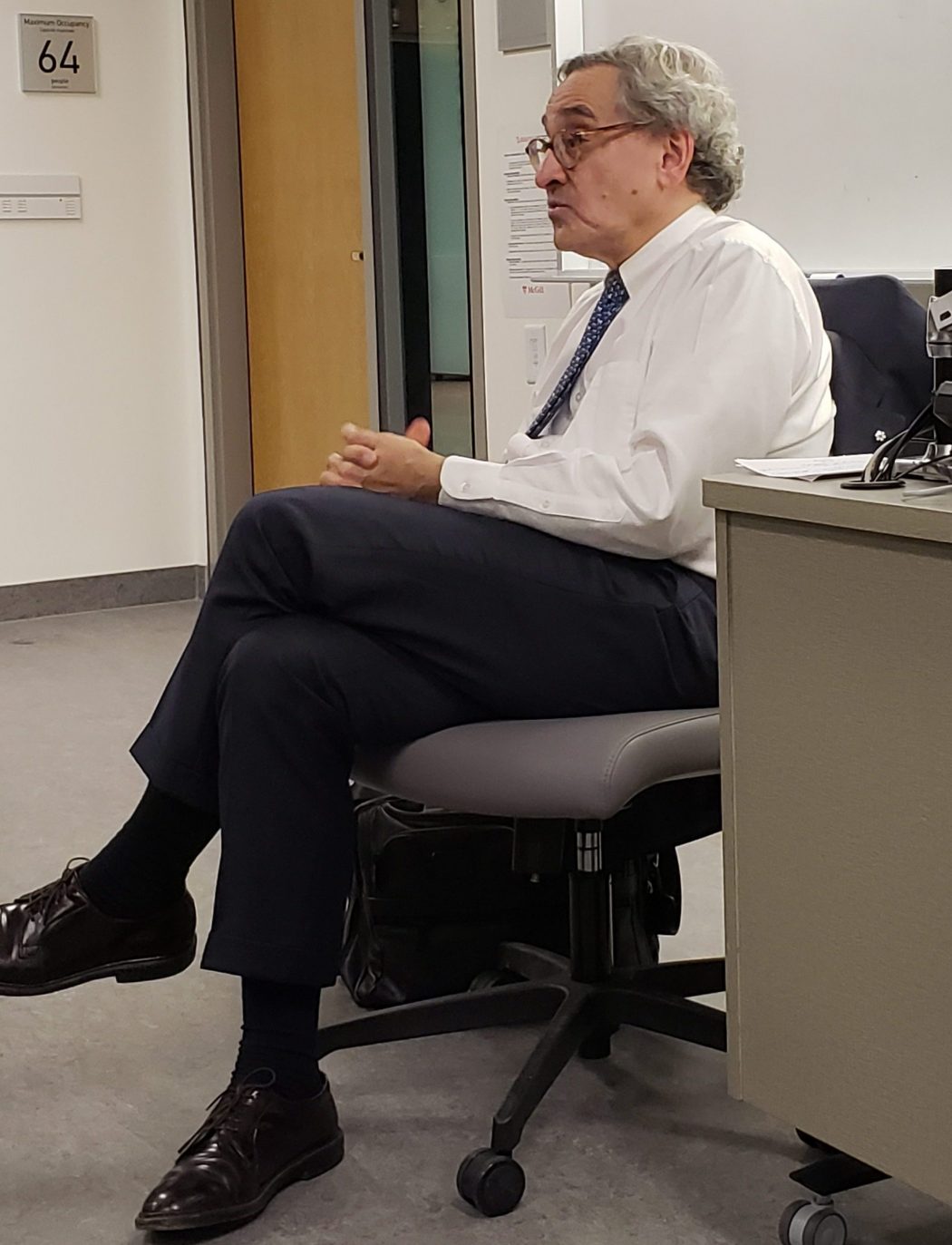In last week’s CEO Series, Michael Sabia did not sugar-coat his response when Professor Karl Moore asked him to share his perspective on the current global landscape. “The world’s in a hell of a mess,” he said convincingly. The audience was lured. For those who know Mr. Sabia, an introduction like this should not be surprising. In his investment and managing styles alike, convention is of little concern to him. As the incumbent CEO of Caisse de dépôt et placement du Québec (CDPQ), Canada’s second largest pension fund, Mr. Sabia is somewhat of a pioneer, emphasizing ‘building’ over ‘trading,’ and venturing “way outside the mainstream of pension investing.” Rather than traditional pension methods of funding projects through debt or specialized securities, CDPQ under his watch offers a ground-up approach by offering financial, construction, and operating services.
Mr. Sabia refers to his most hated entities, hedge funds, as ‘the blight of the landscape’ offering a prime example of the short-term invest return obsession at the expense of social decency.
He elaborated on his ominous opening remarks by outlining the root of this ‘mess’ as “a departure from core values,” which has given rise to populism and demagoguery. From Brazil to India, political divisiveness introduces a high level of political and economic unpredictability, dissuading funds like CDPQ from investing in burgeoning economies that need it most. Further, this global instability has contributed to the quarter-to-quarter myopia that commands Wall Street’s largest funds. Mr. Sabia refers to his most hated entities, hedge funds, as “the blight of the landscape”, offering a prime example of the short-term invest return obsession at the expense of social decency. The way Mr. Sabia sees it, these companies have become nothing more than “commodities traded on an exchange.”
Perhaps aware of the pessimistic lens he is using to view the world, Mr. Sabia shifted his tone and put the onus on the audience, an eager class of MBA students. “The responsibility will be on you guys,” he continued with a more sanguine mood, “to step in and attack these issues head-on.” Ultimately, it is about bringing your “core values to work everyday,” and ensuring those align with your employer’s. While the issues of the world are pressing, they are not insurmountable. True leaders, he went on, emerge in times of distress, not prosperity. Getting excited about tackling these issues rather than discouraged will give rise to this generation’s great problem solvers. The formula for strong leadership was surprisingly simple: combine your core values with an eagerness to solve key issues.
‘The responsibility will be on you guys,’ he continued with a more sanguine mood, ‘to step in and attack these issues head-on.’ Ultimately, it is about bringing your ‘core values to work everyday,’ and ensuring those align with your employer’s.
When asked about these values, Mr. Sabia answered in the same manner he responds to every question, with a quick grin and slight seat readjustment. “You need to go to work everyday and tell yourself ‘I do what I do because I am contributing to something a lot bigger’.” That ‘something’ could be anything; your family, society, or the corporation itself. This sort of selflessness is exactly the culture with which CPDQ operates. The fund has made exceptional returns on good-for-society investments, with a portfolio centred on renewable energy, urban transit, and the mitigation of climate change. “Doing good for society doesn’t mean sacrificing your returns,” he told the class compellingly.
Like all great leaders, Michael Sabia has an incredible knack for articulating key issues. By outlining them as he did last week, he is able to provide angles for attacking the world’s most daunting problems. Perhaps unknowingly, Mr. Sabia taught the class an important lesson in problem solving: by clearly defining the problems, from macroeconomics to personal budgeting, the path to resolution becomes less ambiguous. Despite beginning the discussion with a sharp dose of reality, Mr. Sabia departed on a more optimistic, cheerful note “you are all capable of solving the world’s greatest challenges,” he assured the MBA students.


